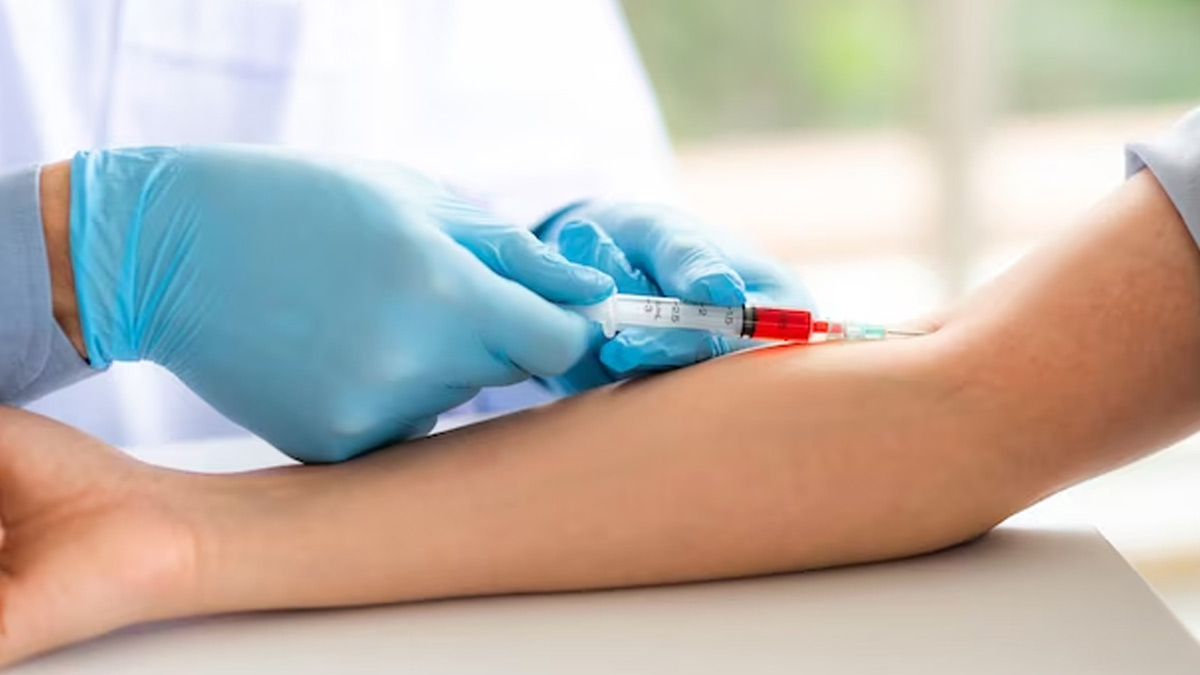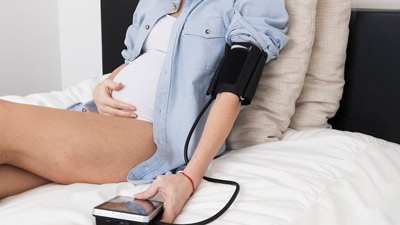Hypertension
Overview of Hypertension
Hypertension or high blood pressure means that your blood pressure (BP) is constantly higher than the normal level, which is 120/80 mm Hg. Blood pressure is the pressure of blood pushing against the coronary arteries that help carry blood throughout the body. This could prove lethal as it increases the risk of stroke and heart diseases.
It is also known as the “silent killer” because it shows no symptoms until it gets detected, sometimes years after its actual onset. You might find out about it during a regular health check-up.Approximately 7.1 million deaths per year are attributable to hypertension.
Blood Pressure is recorded in two numbers: the top number is known as systolic blood pressure and the bottom number is called diastolic blood pressure. Systolic blood pressure is the force exerted by the blood when the heart beats and diastolic blood pressure is the blood pushing through the arteries when the heart rests in between.
Fast Facts about Hypertension
- Normal blood pressure is 120/80 mmHg. If your blood pressure is higher than 140/90 mmHg, then it is hypertension
- Stress promotes hypertension or it could be a result of an underlining problem such as kidney disease
- Hypertension leads to cardiovascular problems such as heart attack, stroke including other conditions
- Lifestyle changes are the key to managing high blood pressure
Causes of Hypertension
No specific cause of hypertension is known yet, but multiple factors contribute to high blood pressure. A person with chronic kidney disease (CKD) could also experience hypertension as in CKD, the kidneys become unable to filter out fluids from the body. This fluid excess leads to hypertension.
Some of the contributing factors of hypertension are:
- Being Overweight or obese
- Age is another factor. People over 60 suffer from hypertension as the arteries becomes narrower due to plaque build-up
- Consumption of excess amount of alcohol or smoking tobacco
- Conditions such as cardiovascular disease chronic kidney disease, diabetes and high cholesterol levels
- Lack of physical activity
- A diet with low potassium or too much salt
- A family history of hypertension
Symptoms of Hypertension
Hypertension is almost impossible to detect as a person with hypertension does not show any signs or symptoms. It is important to keep checking your blood pressure regularly. In some cases, a person may experience some of the following symptoms:
- Severe headaches
- Dizziness
- Nosebleeds
- Blurred vision
- Breathing difficulty
- Anxiety
- Irregular heartbeat
- Chest pain
- Blood in urine
The signs and symptoms do not occur until a severe stage. A regular checkup is the key to regulate blood pressure.
Complications of Hypertension
Atherosclerosis
This condition occurs when there is continuous high blood pressure. It hardens the arteries and leads to pernicious diseases such as coronary artery disease.
Stroke
A person is said to be suffering from a stroke when the blood flow to an area in the brain is cut off and those suffering from hypertension are about 4-6 times more likely to suffer from a stroke.
Kidney Disease
Kidney disease is quite common in people suffering from hypertension. High blood pressure damages the blood vessels, which reduces the blood supply to organs such as kidneys. The filtering units of the kidneys also get affected, as a result, they stop removing extra fluid and wastes from the body. The excess fluid can in turn raise the blood pressure even more.
Eye Diseases
The restricted blood flow in any part of the body can easily damage the blood vessels in the retina. Hypertension gradually develops into eye diseases such as blurry vision inflammation and loss of clarity. Some people may experience complete blindness.
Heart Attack
One of the deadliest outcomes of hypertension is heart attack. Uncontrolled high blood pressure can cause a heart attack, which could affect your blood flow.
Heart Failure
Congestive heart failure occurs when the heart has to pump blood through stiff and narrow arteries. Too much stress on the heart causes heart failure—one of the main reasons of death by hypertension.
Hypertension and Children
Hypertension among children is rare but it is on an increase, according to various reports. Experts say that obesity is the major cause of hypertension in children. Unlike adults who have essential or primary hypertension, children suffer from secondary hypertension.
Causes of Hypertension in Children
- Cardiovascular disease
- Renal or kidney disease
- Endocrine Disorders
- Blood vessel abnormalities
- A family history of hypertension
- Guidelines for screening for hypertension
Kids under three years need regular blood pressure check, especially if there is a history of low birth weight, congenital heart disease, kidney disease or premature birth.
Treatment of Hypertension in Children
- A healthy diet rich in fruits, vegetables and whole grain products
- If your child is obese, try to bring his or her weight to normal
- Limit your child’s salt intake
- Limit the consumption of fast food
- Encourage your child to have at least 30 minutes of physical activity
- Tobacco smoke can affect your child’s blood pressure. Even secondhand smoke can also damage the heart and blood vessels
- Limit sedentary lifestyle like watching TV; do not let them play games for more than two hours etc.
Hypertension and Pregnancy
Hypertension during pregnancy is not necessarily a dangerous condition and requires close monitoring. The types of hypertension that can affect a pregnant woman are:
Chronic hypertension: starts before the 20th week of pregnancy or before the woman becomes pregnant. This could result in slow or delayed intrauterine growth of the baby. Other possible complications include preterm birth, still birth and placental abruption.
Gestational hypertension: The blood pressure increases near the end of pregnancy, but the women do not show any other associated symptoms of high blood pressure. If you have gestational hypertension, the risk of developing a problem of high blood pressure increases later in life. This could also lead to PIH.
Preeclampsia or Pregnancy-induced hypertension (PIH): This is an extremely serious condition as it could affect both the mother and the baby if not treated properly.
Treatment for Pregnant Women
- Visit your doctor regularly throughout your pregnancy
- Ask a nutritionist to make you a healthy diet
- Avoid illicit drugs, smoking and alcohol
- Take proper medication as prescribed by your healthcare provider
Diagnosis and Tests
The only way to measure blood pressure is by measuring with a sphygmomanometer (blood pressure cuff). It is a painless procedure and only takes a few minutes.
Healthy and unhealthy blood pressure can be classified into the following categories:
Normal BP: Systolic- Less than 120; Diastolic- Less than 80
Elevated BP: Systolic- Between 120 and 129; Diastolic- Less than 80
Hypertension Stage 1: Systolic- Between 130 and 139; Diastolic- Between 80 and 89
Hypertension Stage 2: Systolic- Greater than 140; Diastolic- 90 or greater
If your blood pressure is constantly high, then you need medical help immediately. In such a case, the doctor may ask you to undergo other tests besides measuring the blood pressure:
- Urine test
- Blood test
- Cholesterol test
- Electrocardiogram (ECG) test
- Abdominal and Renal Ultrasound
Treatment for Hypertension
Lifestyle changes are a must when it comes to controlling your blood pressure. If your systolic BP is between 120 and129, then it is elevated blood pressure, also called prehypertension. Prehypertension could easily lead to hypertension later in life. In order to control this condition from progressing, your doctor will advise you to:
- Maintain a healthy or normal weight. The aim should be maintaining the body mass index (BMI) of 18.5-24.9 kg/m2
- Eat a healthy diet – Your diet should be rich in fruits and vegetables, include low-fat dairy products and foods low in saturated or total fat
- Eat a low-sodium diet
- Engage in regular physical exercise such as walking, aerobics, moderate intensity exercises etc.
- Consume minimal alcohol and tobacco
- Check your blood pressure regularly
- Avoid stress at all costs
Despite taking these measures, if you still see a constant hike in your blood pressure then your doctor may start medications to bring it back to normal. The goal of the blood pressure treatment should be less than 130/80 mm Hg if you are a healthy adult aged 65 or older, have diabetes, chronic kidney disease or coronary artery disease.
Related Articles
-
5 Risk Factors Of High Blood Pressure That Are 'Modifiable' And Can Be Prevented
An elevated level of blood pressure should not be ignored as it can significantly increase your risk of heart disease.
-
Covid-19 Linked With A Higher Risk Of Hypertension, Study Reveals
A recent study reveals a potential link between COVID-19 and a higher risk of hypertension, even among individuals with no prior history of high BP.
-
Is Nosebleed A Sign Of High Blood Pressure? Here’s What You Should Know
Hypertension alone doesn't cause nosebleeds unless your BP is extremely high, but it can damage the blood vessels inside your nose, causing nosebleed
-
4 Long Lasting Benefits Of Isometric Exercises For Lowering Blood Pressure
With ease of practice and potential cardiovascular benefits, isometric exercises offer a promising approach to help control blood pressure.
-
Understanding Hypertensive Crisis: A Critical Health Concern
When blood pressure spikes to extremely high levels above 180/120 mmHg, it becomes a hypertensive emergency, posing threats, such as stroke.
-
New Blood Test Could Detect High Blood Pressure In Women During Pregnancy
The test is said to have a 96% accuracy. Reports have that it is already available in Europe.
-
Your Eyes Can Signal High Blood Pressure: Here Are Signs To Watch Out For
If you’re a hypertensive patient, do not ignore any changes in your vision. You could be suffering from hypertensive retinopathy. Here’s what to know
-
7 Health Hazards Of High Cholesterol Levels
Preventing high cholesterol and addressing it promptly is crucial for maintaining health and reducing the risk of serious cardiovascular complications
-
High Blood Pressure In Pregnant Women: Warning Signs To Note
If you’re pregnant, ensure that you have your blood pressure levels in check. Complacency can lead to complications, such as preeclampsia.
-
Ashwagandha For High Blood Pressure: How To Consume It, As Per Expert
Hypertension affects your blood vessels and cardiovascular health. Here is how ashwagandha can help you manage it.















